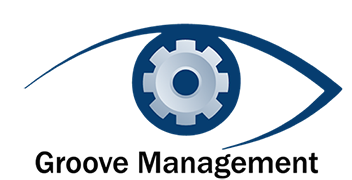What The Next Generation of HR Leaders Will Need to Succeed- An Interview
An interview with Brian Formato, Principal at Groove Management regarding the changing demands of the next generation HR leaders.
What are the current and potential future business demands required of the HR function and HR leadership? How are these demands different from the past?
The term that I have been using a lot more as it relates to HR is agility. Agility being a combination of speed and change. HR professionals need to be better at scanning the horizon, spotting trends, anticipating the impact on their organizations and proactively planning to address the coming changes. Some of the more obvious trends are: 1) The globalization of the world economy and the need for all organizations to play in a global marketplace. 2) The aging of the workforce and the need to create clear succession plans with knowledge transfer as the baby boomer retire. 3) The pace at which technology is changing how and where we work. These three changes require a new skill set for HR.
What must the HR function deliver to the organization to meet the changing business landscape?
HR must clearly identify the human capital implications of the changing environment and provide a long range plan to fill the gaps that will exist from a talent standpoint in each organization. HR people must understand every aspect of the business and not work within an HR silo. Being a business leader first and an HR professional second will be critical. This will provide the insights and the credibility required of HR to be a successful partner.
What are the critical business, technical/functional, and leadership capabilities required of the Next Generation HR leadership to deliver this? How does this differ from today?
I strongly believe that HR Professionals need to be very comfortable with emerging technologies and be at the forefront of leveraging technology. A good example would be the use of video conferencing for recruitment. Rather than flying candidates to the company, at least initial round interview can and should be conducted via video conference. HR teams that learn to leverage technology will be ahead of the curve. A strong organizational development skill set is also critical. HR professionals need to understand change management and the drivers of human behavior. Another requirement is around having a global mindset. HR must understand cultural nuances and help their organization to set up shop in new geographies. Transactional HR activities will be outsourced, so the skills required are quite different than in previous generations. Being more consultative and business focused will define success. HR leaders in the future will come out of the line business rather than up through a traditional HR career path.
What experiences lend well to developing these (new) capabilities?
Learning the business from the customer on back is critical. Shifting the paradigm from HR being a non transferable skills to it being a highly transferable skill will make a big difference. A stint in HR might be a critical path to the top for any leader in the new world. HR becomes about connect the people with the business strategy. An MBA might be more appropriate than a masters in HR. HR professionals will need to understand financials, marketing, communications, operations, etc. Cross functional assignments and expat assignments can be very helpful in developing these skills.
What is the timeframe in which these changes/shifts/evolution might occur?
The shifts are occurring now. They won’t happen overnight but by 2020 I think HR will look significantly different. It is an evolution, but the companies that embrace the shift and recognize it early will benefit the most.

